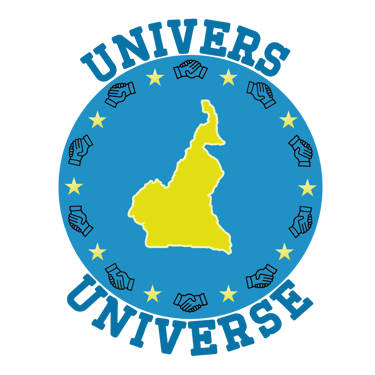Chapter 1 – On National Reconciliation
In this chapter, you will read:
· Theme 1 – Reconciliation with the History of Cameroon;
· Theme 2 – Reconciliation between Tradition and Modernity;
· Theme 3 – Reconciliation through the fight against corruption and embezzlement of public funds;
· Theme 4 – Reconciliation in the context of the conflict in the North-West and South-West Regions.
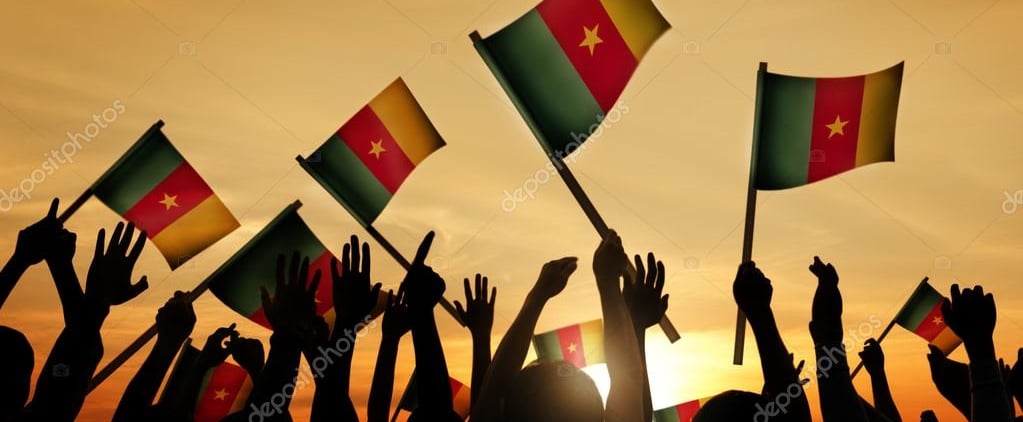

Reconciliation consists in restoring harmony and understanding between people, communities, or institutions that have been in conflict. It means rebuilding relationships based on mutual understanding, without hypocrisy. Reconciliation becomes essential after periods of upheaval or conflict that have fractured the social fabric. Indeed, rebuilding Cameroon must begin with reconciliation, after many years—indeed, centuries—of conflict.
Conflicts have existed since the very inception of the Cameroonian state and nation:
Conflicts between colonizers, neo-colonizers, and the colonized;
Conflicts between rulers and the ruled;
Conflicts between embezzlers of public funds and the collective victims;
Conflicts of identity, culture, economy, and politics among citizens…
The reconciliation proposed by the UNIVERS Party is fourfold:
· Reconciliation between Cameroon and its own history (Theme 1);
· Reconciliation between tradition and modernity (Theme 2);
· Reconciliation in the fight against corruption, embezzlement, and illicit enrichment (Theme 3);
· Reconciliation in the context of the Anglophone crisis in the North-West and South-West (Theme 4).
Theme 1 – Reconciliation with the History of Cameroon
This theme includes:
· Rewriting the History of Cameroon;
· Recognizing the Great Figures of Cameroonian History.
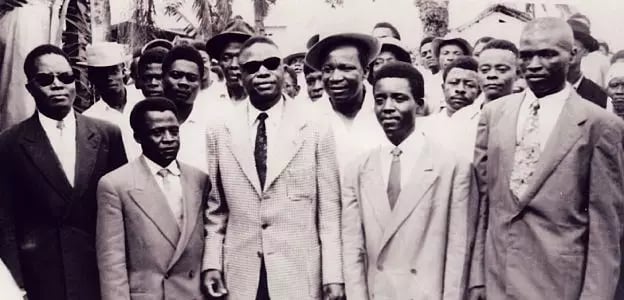

History is at the heart of a people’s or a nation’s collective memory. It is a reference framework upon which a large part of a social group’s identity is built. Cameroon today is disconnected from its own history—living as a country with no compass, no memory, and no collective consciousness. Hence, the pressing need for reconciliation with its historical past.
This reconciliation involves revealing the truth and sharing historical narratives. Dialogue is essential to transform the relationships between Cameroonian social groups who have been affected by conflicts rooted in the country’s past. The aim of reconciliation is to restore trust:
— trust between the state and its citizens,
— and among the citizens themselves.
Reconciliation is therefore a foundation upon which a shared future can be built.
The UNIVERS Party proposes two major actions:
1. The rewriting of Cameroonian history (Measure 1), and
2. The rehabilitation of historical heroes (Measure 2).
Measure 1 – Rewriting the History of Cameroon
In post-conflict societies, history becomes a tool for national reconstruction and a support for creating a shared memory. In the case of Cameroon, its history suffers from significant flaws in how it has been written—and solutions must be found.
The Problem:
Cameroon’s history was written by colonizers and neo-colonizers, who shaped it to serve their interests and maintain their dominance. As a result, only the facts that glorify their deeds are emphasized, while other, less flattering facts are hidden or distorted. The recent history of Cameroon—its path to independence, reunification negotiations, political unification—has never been thoroughly documented. This is partly because the key figures of those events are still alive and often still in power. The same goes for the stories of failed, real, or fabricated coup attempts.
The Solution:
True reconciliation with history requires a thorough rewriting by qualified Cameroonian historians. Acknowledging that no historian is ever completely neutral, this effort should be guided by the goal of restoring national pride and ensuring that current and future generations are not made to feel ashamed of their country.
The heroic deeds of our ancestors must be highlighted and celebrated. Cameroonian-authored history books must be introduced into school and university curricula to replace colonial and neo-colonial versions that only served foreign interests. History should be a source of inspiration for the youth and a driving force for development, with a focus on its glorious aspects.
Measure 2 – Recognition of the Great Figures of Our History
The great figures of Cameroonian history are those who lived before us and left a mark on their time through their convictions, actions, and accomplishments. They made meaningful choices aimed at improving life for others—the collective. These individuals embody the values of a nation and serve as role models for younger generations. They become symbols that reinforce the ideals a country holds dear.
Initial steps to be proposed to Cameroonians include:
· Repatriating the remains of those who made significant contributions to Cameroonian history, regardless of their political affiliations;
· Building a national Pantheon to honor those officially recognized by historians as major figures in the nation’s past.
These great figures will be identified across all domains of life:
· Resistance to colonization,
· Fighters for genuine independence,
· Military figures,
· Teachers,
· Artists,
· Entrepreneurs,
· Athletes…
The government must initiate programs to produce cultural and artistic works that celebrate national heroes. Their names should be given to public spaces to ensure their memory lives on.
Theme 2 – Reconciliation Between Tradition and Modernity
This theme includes:
· The rehabilitation of traditional chieftaincies;
· The rehabilitation and official recognition of national languages.
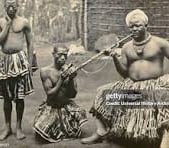

Before the arrival of European colonists, the people now referred to as "Cameroonians" had already existed for thousands of years. They had their own way of life, with customs and traditions passed down through generations. With colonization, the European powers sought to erase these millennia-old African ways of life by imposing their institutions, customs, and worldview, which they elevated as the standard of “modernity.” A conflict thus emerged between African traditions and European modernity—a conflict that persists to this day. European modernity continues to try to impose itself in all spheres of life, while traditional values resist.
Although several efforts have been made to bring these two systems closer, much still needs to be done to ease the frustrations that disrupt the well-being of Cameroonians. To move further along this path, the UNIVERS Party proposes two major measures:
· Measure 1: Rehabilitation of traditional chieftaincies
· Measure 2: Rehabilitation and official recognition of local languages
Measure 1 – Rehabilitation of Traditional Chieftaincies
Problem
Since the colonial era, traditional chieftaincies have been undermined. Colonial administrations largely ignored these institutions. Chieftaincies that resisted colonial institutional invasion were sidelined—or even erased altogether. Those that chose to cooperate were relegated to the role of mere auxiliaries to colonial administration and justice. Since then, most traditional chieftaincies have lost their prestige.
The neo-colonial state has continued to downplay the importance of chieftaincies. Today, traditional leaders are appointed by the state and paid monthly as administrative auxiliaries. As a result, they no longer act as true representatives or guardians of ancestral traditions, but rather as state agents. They have been stripped of their ancestral powers—such as managing community lands or resolving intra-community disputes. Their role carries no real authority, no legal immunity, and no privileged status in official protocol.
Solution
To reconcile state modernity with traditional institutions, the UNIVERS Party proposes two alternative frameworks:
1. Autonomous Traditional Authority
Traditional chiefs would no longer be auxiliaries of the state. All hierarchical ties with the local administration would be severed. Instead, the state would exercise only a supervisory role—much like it does with religious orders. Chiefs would no longer be appointed or elected through state channels. Instead, they would return to their traditional role as representatives, defenders, and guardians of ancestral customs. They would become respected wise figures, to be consulted by state authorities. To restore their dignity, they would also be granted privileges and immunity.
2. Integration into the State System
Alternatively, traditional chiefs could be integrated more deeply into the state's institutional structure—but not as subordinate auxiliaries. Rather than remaining at the bottom of the administrative hierarchy, they would be part of decision-making councils at central, regional, and departmental levels. Certain decisions could require the approval of these Councils or Assemblies of Chiefs. In a bold step toward institutional reconciliation, the Senate could even be composed entirely of traditional chiefs.
Measure 2 – Rehabilitation and Official Recognition of Local Languages
Problem
A language is a symbol of a group’s identity. It helps define a nation. So when we talk about a “Cameroonian Nation,” what language reflects its identity? Which language unites its people and fosters national consciousness? Sadly, there is none. French and English—currently Cameroon’s official languages—are the symbols of two foreign nations: France and Great Britain.
Language is also a tool of domination. Colonial powers used their languages to dominate and control. After independence, Cameroon has continued to accept this linguistic domination.
Moreover, language can be used deceptively—particularly in legal or contractual settings—where misunderstanding due to poor comprehension can have serious consequences.
French and English were imposed as official languages, but only those trained in Western-style schools can speak them. Nearly 70% of Cameroonians are unable to express themselves in either French or English. As a result, they are excluded from a state system that only recognizes these two languages.
Solution
Without rejecting French and English, the UNIVERS Party proposes that these two languages be accepted as part of our historical legacy. However, to achieve true reconciliation with our traditions, at least one national Cameroonian language should be elevated to official status alongside them.
The Party proposes three regional languages:
· Fufulde in the Adamaoua, North, and Far North Regions;
· “Mongo Ewondo”, a vernacular blend of Ewondo, Boulou, and Eton, in the Centre, South, and East Regions;
· Pidgin in the Littoral, West, North-West, and South-West Regions.
By recognizing these languages as official—alongside French and English—Cameroon would not be breaking new ground. Neighboring Central African Republic has already recognized Sango as an official language along with French. South Africa has granted official status to several local languages: Xhosa, Zulu, Tswana, Venda, Sotho, Tsonga, and others.
Under a trilingual model, every public official would be required to master French, English, and the official national language of the region where they serve. Citizens would be free to use any of the three official languages in public services. For civil servants, trilingualism would be cumulative; for citizens, it would be optional.
The implementation of such trilingualism will take time. The UNIVERS Party understands that this transformation will take years, but the foundations must be laid now—backed by strong political will and resources. Teaching these official languages from primary school onward will ensure that within about 20 years, Cameroon will have truly trilingual citizens.
Theme 3 – Reconciliation in the Fight Against Corruption, Embezzlement of Public Funds, and Illicit Enrichment
For this theme, we will examine:
· The general problem;
· The specific case of land ownership.
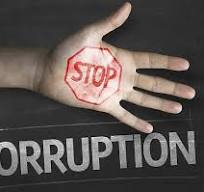

General Problem
Since the time of Cameroon’s first President, Ahmadou Ahidjo, corruption, embezzlement of public funds, and illicit enrichment have already taken root in the country. When President Paul Biya came to power in 1982, he intended to end these issues by promoting “rigor and moralization.” However, it became clear that these phenomena were stronger than him; he ultimately gave in, allowing them to flourish—even encouraging them to maintain his political power.
Today, it’s common to see individuals amassing outrageous material fortunes without being able to justify their origin. Civil administrators, magistrates, police or military officers—earning monthly salaries between 100,000 and 500,000 CFA francs—brazenly display wealth worth billions of francs, despite having been career civil servants with no known income beyond their official jobs.
We witness people with no identifiable activity or income becoming billionaires overnight, right after a relative or friend is appointed as a Minister, Director General of a public company, or simply a public funds manager. Truthfully, the vast majority of rich men and women in Cameroon have built their fortunes through corruption, public fund embezzlement, or through known and unknown crimes.
This situation has led to the emergence of a wealthy, dishonest social class that mocks the majority of honest citizens. Between these two social groups, inevitable tensions exist—even though they haven’t yet escalated into armed conflict. But things could spiral at any moment if steps are not taken toward reconciliation, which must include comprehensive reforms, with a particular focus on illicit enrichment through land acquisition.
Global Solution
Rebuilding Cameroon is impossible without addressing this reconciliation, which requires tackling corruption, embezzlement, and illicit enrichment head-on.
The solution is to require any citizen who suddenly displays substantial material wealth to explain and justify it before a designated authority. It would be unjust to let those who have enriched themselves for years continue to mock the Republic.
This is not to say that all rich people acquired their wealth dishonestly. An honest person will feel no difficulty or shame in coming forward to explain the origin of their wealth—they may even do so with pride: they earned it through football, music, winning the lottery, etc.
If someone claims to have inherited their wealth, they should also be able to explain how their predecessor acquired it. Any unjustified assets will be confiscated and returned to the state. This process will send a clear message: no matter how much one illicitly enriches themselves, the day will come when they must be held accountable.
Specific Case of Land Ownership
The Problem
In 1974, Cameroon undertook a land reform. Lands were divided into three categories: private domain, public domain, and national domain. Land was then integrated into the national development strategy.
Lands classified as national domain—by far the majority, covering nearly 90% of Cameroonian territory—include both unoccupied lands (forests, savannahs...) and lands occupied by individuals without legal land titles, which are the only recognized proof of ownership.
Before the 1974 reform, these lands were managed by customary authorities. After the reform, management was handed to the State via administrative authorities.
To benefit from national domain land, one must have developed it before 1974. These individuals can request and obtain a land title through direct registration. A deadline of August 5, 1976, was set for occupants prior to 1974 to apply for such titles.
After this deadline, land could only be obtained through indirect registration, which involves applying to the administrative authority for a concession of unoccupied land, developing it, and then requesting a title after development.
In violation of these legal provisions, corrupt individuals—often aided by accomplices within the State administration—have seized large portions of national domain lands. Ministers, MPs, businesspeople, senior civil servants, etc., who never developed the land, have fraudulently obtained land titles.
In some regions, individuals now claim ownership over thousands of hectares. Meanwhile, poor farmers are stripped of their ancestral lands, preventing them from practicing agriculture or livestock farming. These displaced rural citizens swell the numbers of the unemployed in urban areas.
Proposed Solution
Once in power, the UNIVERS Party will establish a commission to audit all land titles. All holders of thousands of hectares, or abnormally vast estates, must explain how they acquired them.
Any fraudulently obtained land titles will be outright cancelled.
In essence, a new land reform will be initiated, aiming at a fair redistribution of land in Cameroon, guided by justice and equity. Farmers and rural people must be restored to their rightful lands, taken from them by land speculators and fraudsters.
RECONCILIATION IN THE CONTEXT OF THE NORTH-WEST AND SOUTH-WEST CRISIS
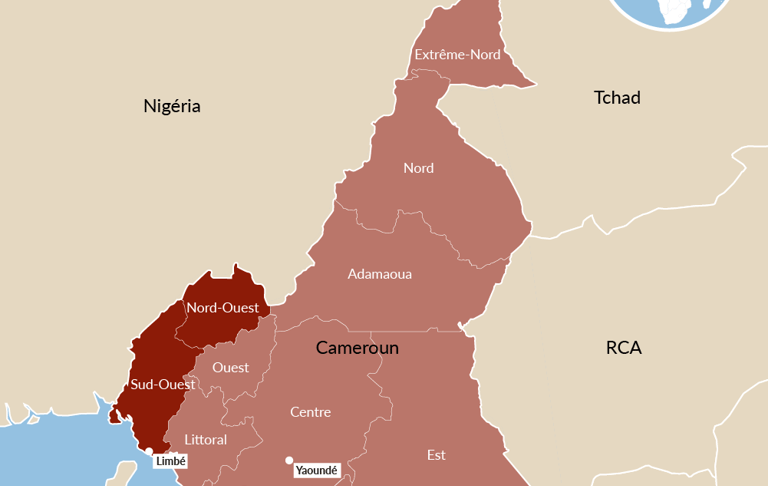

The Problem
Since 2017, the English-speaking regions of Cameroon—formerly administered by Great Britain during colonial times—have been in crisis. Armed separatist groups are fighting to establish a breakaway state called “Ambazonia.” The consequences have been devastating: thousands of lives lost, commercial, social, and educational activities paralyzed, and billions spent from the public treasury to fund a war with no end in sight.
Separatists refuse to lay down arms unless “Ambazonia” is officially recognized, while the current Cameroonian government rejects any negotiation or compromise. Meanwhile, opportunistic criminals exploit the chaos to loot, attack, and kill.
To restore peace—a prerequisite for national development and individual prosperity—this civil conflict must end.
The Solution
All wars and conflicts end at the negotiation table. This one will be no different.
Once in power, the UNIVERS Party will open dialogue with the separatists. The objective: to make them understand that secession is not the solution. While the Party doesn’t support breaking away from Cameroon, it acknowledges the legitimacy of their grievances—grievances that were ignored by the current government, pushing many to violent extremes.
The UNIVERS Party will listen. No group will be excluded from the peace talks. All separatist factions will be invited to the table, alongside representatives of the local populations—traditional rulers, political leaders, religious figures, women, youth, and others.
The Party will release those imprisoned in connection with the crisis and invite diaspora Cameroonians who support the secessionist cause to join the dialogue. Together, Cameroonians will find their own path to peace.
Moreover, the UNIVERS Party will implement the 2013 decision of the African Commission on Human and Peoples’ Rights (ACHPR), which stemmed from a 2003 complaint by SCNC and SCAPO—two separatist groups seeking a return to the pre-1961 status and independence for the Anglophone regions.
While the Commission rejected the request for independence, it made strong recommendations to the Cameroonian state:
1. End all discriminatory practices against people from the North-West and South-West, including unequal use of English in commerce;
2. Stop transferring accused persons from Anglophone to Francophone provinces;
3. Ensure that all accused individuals are heard in a language they understand and provide interpreters if necessary;
4. Implement national development projects fairly across all regions, including the North-West and South-West, based on economic viability and regional balance;
5. Compensate companies in the North-West and South-West that suffered from discriminatory treatment by banks;
6. Engage in constructive dialogue with SCNC and SCAPO to address constitutional issues and grievances threatening national unity;
7. Reform the High Council of Justice, ensuring it is composed of members independent from the President, Justice Minister, and the Executive.
The ACHPR also urged SCNC and SCAPO to:
1. Transform into political parties;
2. Abandon the idea of secession and commit to constructive dialogue with the Cameroonian state over constitutional and governance issues.
